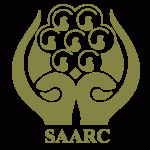SOUTH ASIA > SAARC Energy Pact Ushers in a ‘New Era’
Source:- e-Kantipur
KATHMANDU, NOV 29 – The Saarc Chamber of Commerce and Industry (Saarc CCI) on Friday described the signing of the Saarc energy pact as the commencement of a new era which would not only light up South Asia but also energize the whole region if it was implemented in both letter and spirit.
The eight Saarc member countries signed the Saarc Framework Agreement on Energy Cooperation (Electricity) at the 18th Saarc Summit that concluded here on Thursday paving the way for power trade among them.
The Saarc CCI also expressed the hope that two other proposed pacts on motor vehicles and railways that did not happen would be signed soon. The Kathmandu Declaration released at the conclusion of the summit stated that the Saarc transport ministers would get together within three months to finalize the agreements for approval.
Suraj Vaidya, senior vice-president of the Saarc CCI, said as India relied on coal to meet more than 65 percent of its energy needs and countries like Nepal, Maldives and Sri Lanka were heavily dependent on fossil fuels, there is a need for clearing all the legal hurdles in the way of electricity trade.
Stating that the region’s enormous energy potential needed to be tapped for the benefit of the peoples of South Asia, the Saarc CCI said that the region’s private sector was ready to play its due role in exploiting these resources. With most South Asian countries suffering from energy shortages, the pact is expected to create a regional market for energy besides boosting investment. Saarc members have agreed to enable the concerned agencies in their respective countries to develop transmission interconnectivity within the region.
Zubair Ahmad Malik, executive committee member of the Saarc CCI, said that the agreement on energy was an achievement for the whole region and that the activities that occurred in Kathmandu in the last two days had provided a ray of hope.
Malik from Pakistan said that his country, which is also energy deficient, believed in integration of the region through all the ways possible to attain high economic growth.
The pact on railways and motor vehicles could not be signed during the Saarc Summit because Pakistan said that it was not internally prepared to do so.
Expressing concern at the insignificant volume of regional trade which stands at 5 percent of the total foreign trade, the Saarc CCI has urged the political leadership to act to increase it to 8 percent within the next three years. “It is achievable provided the member nations of Saarc make joint efforts,” the regional business association said.
Similarly, the Kathmandu Declaration has directed the Safta Ministerial Council and the Safta Committee of Experts to accelerate free trade in goods and services in the region by putting into operation simplified and transparent rules of origin, implementing trade facilitation measures, harmonizing standards relating to technical barriers to trade and simplifying and harmonizing customs procedures.
In order to promote cross-border trade and investment, the Saarc business body said that economic corridors needed reactivation under bilateral, sub-regional and regional initiatives.
“For this purpose, it has stressed the need to establish a South Asian Clearing Union on the pattern of the Asian Clearing Union, set up a Saarc Development Bank with branches in all the member states.” The member states have agreed “in principle” to set up an Indian-initiated Saarc Development Bank. Likewise, the Saarc CCI has welcomed and appreciated the vision of Indian Prime Minister Modi to issue three-five year multiple-entry business visas and initiate Saarc business cards. The Saarc CCI has said that the Saarc Visa Exemption Sticker Policy, which allows only 200 visas to each country with a validity of 90 days, is restricting free movement of business persons within the region. It has asked for 200-500 visa exemption stickers for each Saarc member country with a validity of a year.
Meanwhile, the Saarc CCI member from Bhutan said that the regional business association had succeeded in officially participating in the Saarc Summit for the first time since its inception, and that the focus put on the economy by almost all the heads of government or state during the summit had sparked optimism. “India seems to be positive to balancing its trade relationship with the member countries. This is a positive indication,” the representative said.
The Saarc CCI has also urged Saarc to recognize its official status and involve it at the policy formulation level. “One of the reasons for the non-implementation of the plans and policies is the absence of private sector involvement at the policy level,” the Saarc CCI said in a statement.
Meanwhile, the Federation of Nepalese Chamber of Commerce and Industry welcomed the pact on energy and asked Nepal, as the chair of Saarc, to make efforts for its implementation.
The apex private sector body said Nepal succeeded in presenting itself as an investment destination. It also called for honest implementation of promises made to ensure free trade of goods and services.
FNCCI also said the project development agreement signed between the Investment Board of Nepal and Satluj Jal Vidyut Nigam for 900MW Arun III Hydropower Project was a milestone in Nepal’s hydropower development.
Invest without hesitation: PM
Prime Minister Sushil Koirala on Friday said investors could invest in Nepal without hesitation, saying the country has created a conducive business environment. During his meeting with a delegation of the Saarc Chamber of Commerce and Industry (Saarc-CCI), Koirala assured investment security, according to a Saarc-CCI statement. Referring to recent hydropower agreements, the prime minister said development in Nepal has just begun. “About six decades were spent in struggle for democracy and we could not pay due attention to development,” he said. Saarc-CCI Senior Vice-President Suraj Vaidya led the team and represented by FNCCI President Pradeep Jung Pandey and Saarc-CCI representatives from Bangladesh, Bhutan and Pakistan.





